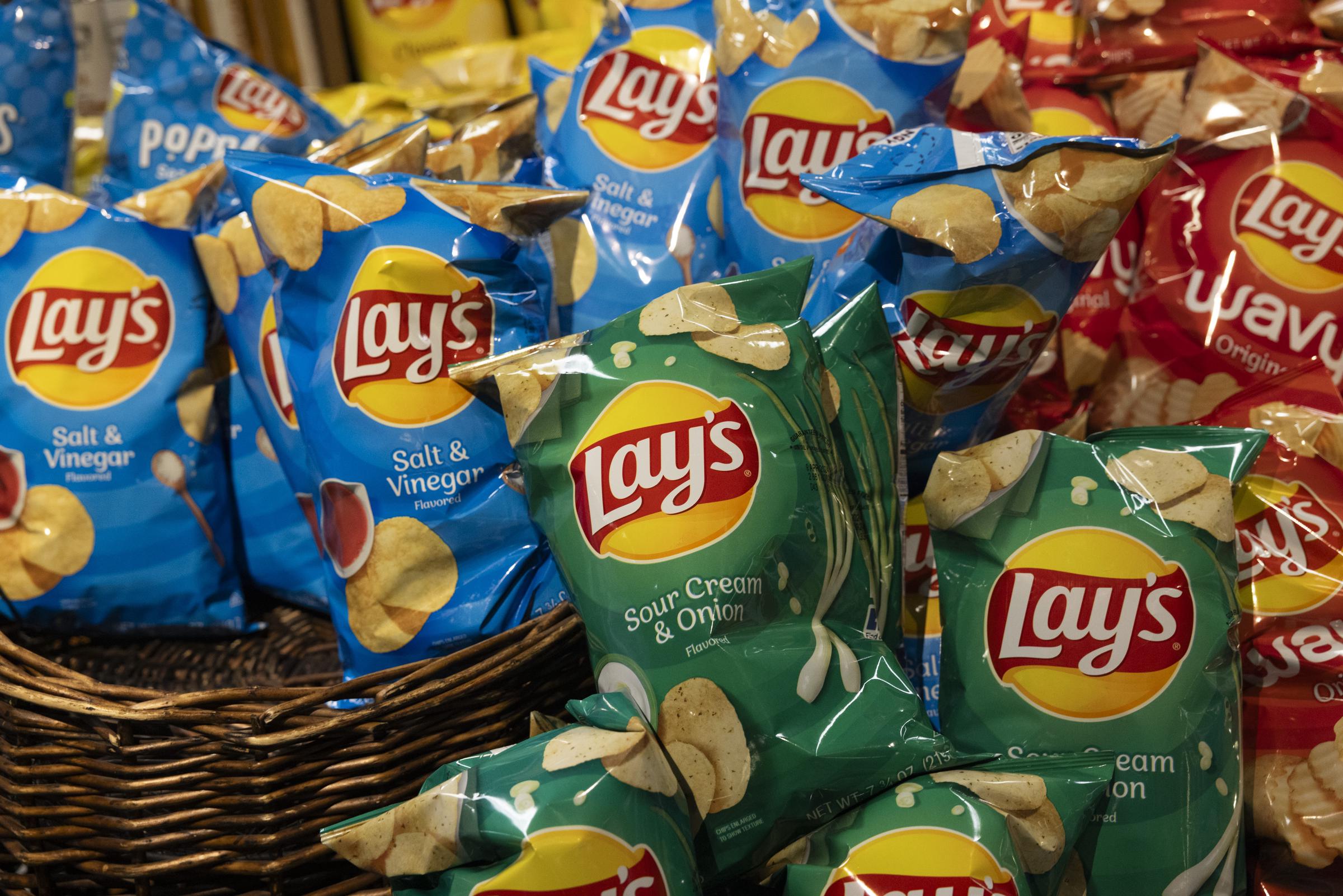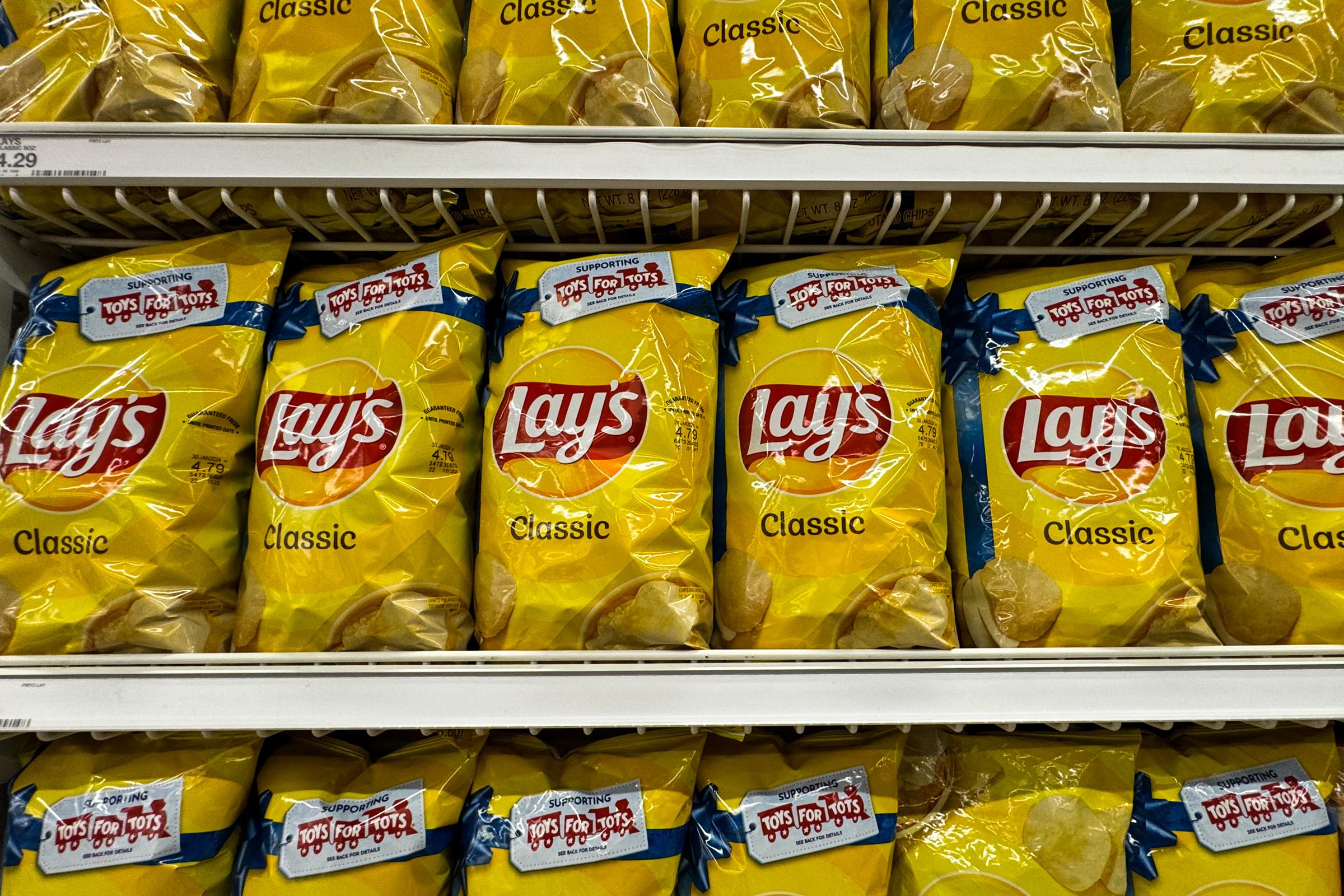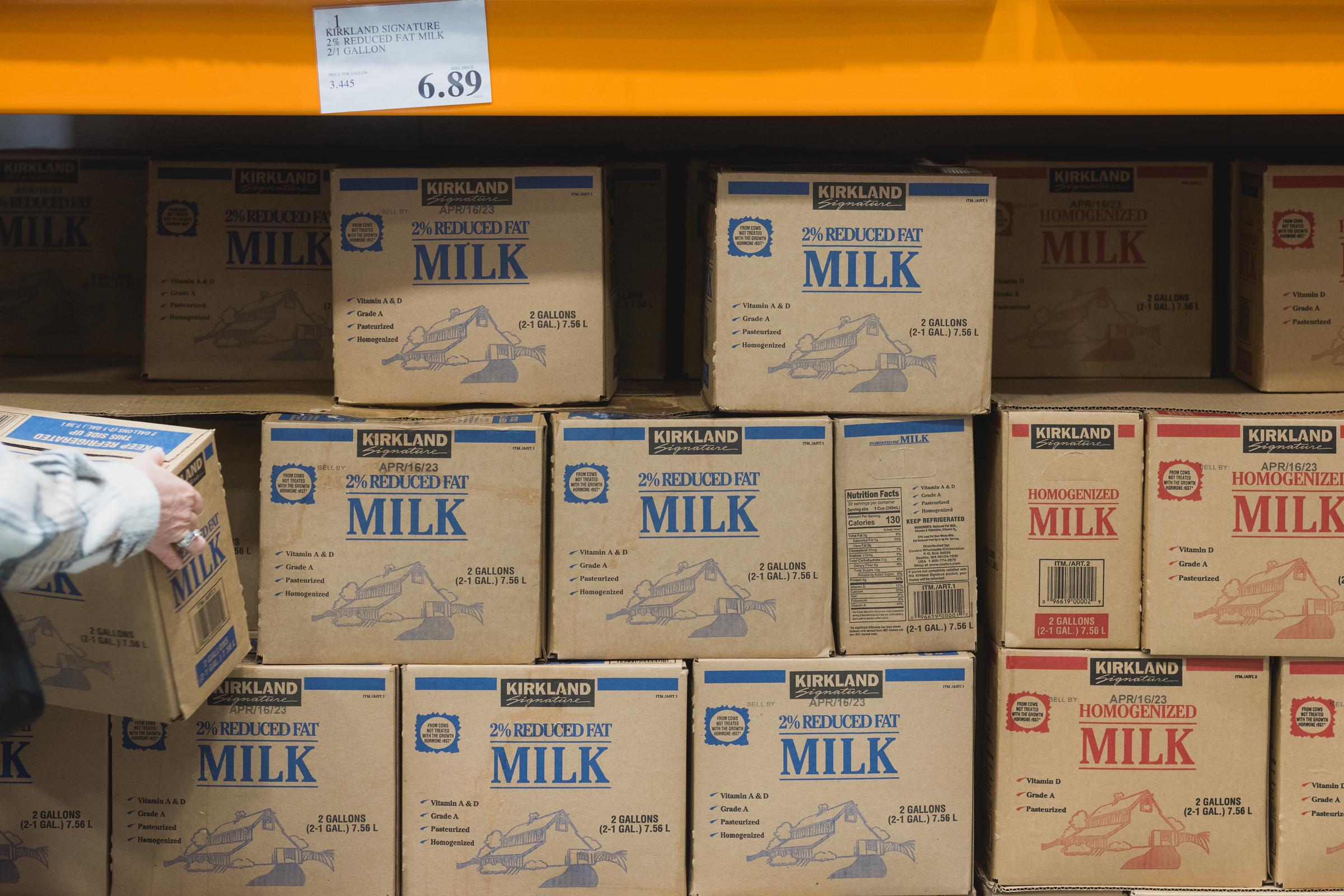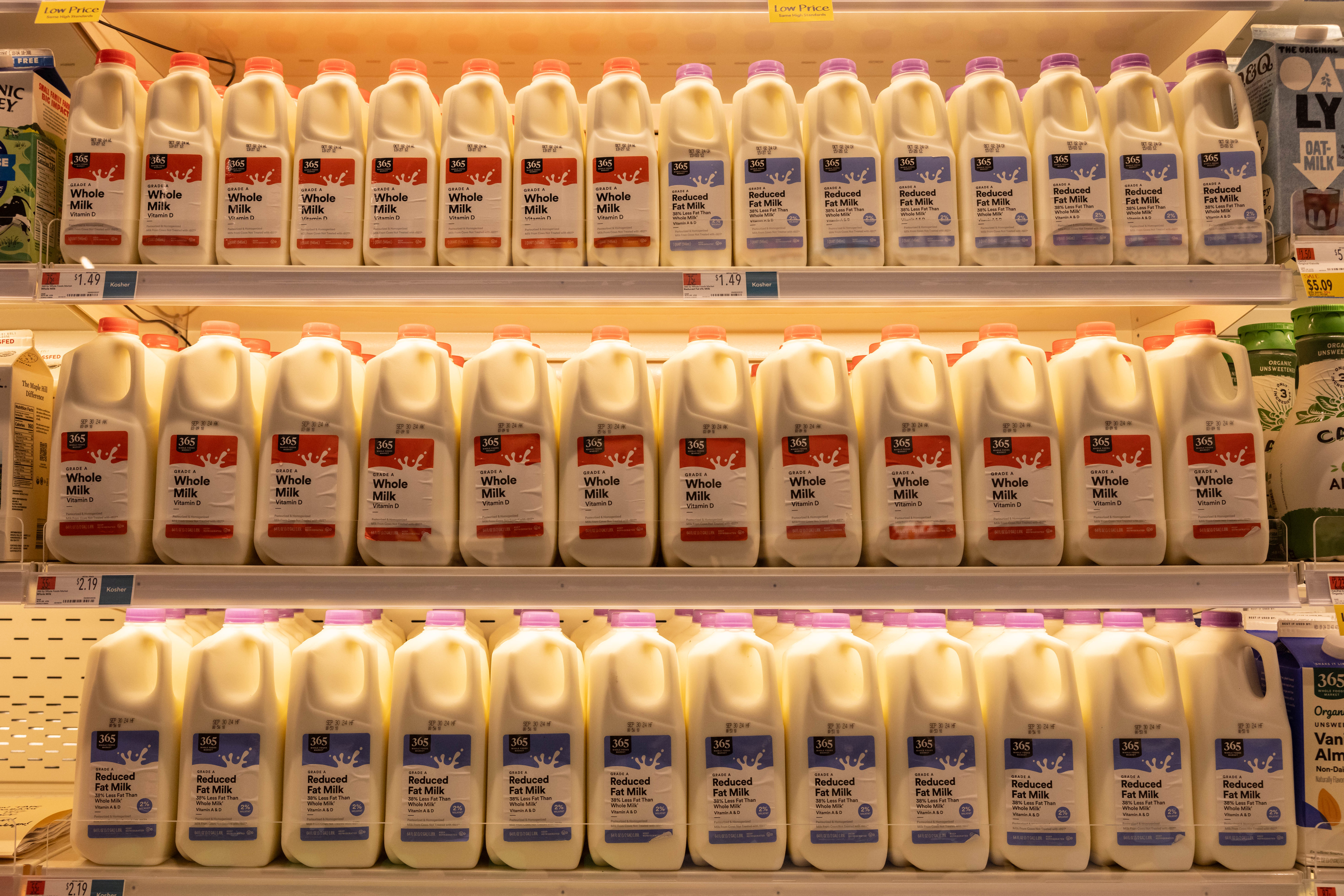
Shoppers at Walmart
According to the FDA’s enforcement report, the product is a “Great Value, Chicken Broth, 48 oz. , Aseptic paper cartons, 6 retail units per case, 120 cases/pallet.” The reason for the recall is due to a “Potential for packaging failures that could compromise the sterility of the product, resulting in spoilage.”
The affected cartons are labeled with a “Best Used By” date of March 25, 2026, a batch or lot code of 98F09234, and the following Universal Product Codes (UPCs): 007874206684 for retail units and 078742066844 for cases.
According to the FDA’s report, Tree House Foods notified consignees of the recall by telephone. The recall remains ongoing, and the company has not issued a press release.
Their statement continued, “As soon as we were made aware of the issue, we took action to remove all impacted (products) from … select, impacted stores. We are continuing to work with the supplier to investigate.”

Shoppers looking for products inside Walmart
Walmart advised customers who purchased the product not to consume it and to dispose of it immediately. Customers can also request a full refund.
This is not the first time a Great Value product has faced an FDA recall. Last year, Great Value 100% Apple Juice, sold in 8-ounce plastic bottles in six-packs, was recalled because the “Product contains inorganic arsenic above action level set in industry guidance (13.2ppb).”
On September 13, 2024, Refresco Beverages issued a statement explaining that the recall was initiated “out of an abundance of caution.”
The company assured that no incidents had been reported and encouraged consumers to check the FDA’s recall list for more information. The recalled apple juice, marked with a “Best if Used by DEC2824 CT89-6” code, remains under an ongoing recall.
On December 16, 2024, Frito-Lay published a bulletin on their website announcing the recall of select 13 oz. bags of Lay’s Classic Potato Chips. The recall followed an alert from a consumer.

A photo of a bag of opened Lay’s Classic chips taken in Tiskilwa, Illinois on April 17, 2019
Frito-Lay’s recall specifically targeted bags of chips that contained undeclared milk, posing a serious risk to individuals with milk allergies or sensitivities.
The company confirmed that the affected products were distributed to select retail and e-commerce locations in Oregon and Washington and noted that customers could have purchased these chips as early as November 3, 2024.

A photo of Lay’s Classic chips taken in Miami, Florida on May 2, 2024
A representative for Frito-Lay confirmed the recall details in a statement to Newsweek, emphasizing the company’s commitment to transparency and consumer safety.
In their comment, the representative also clarified that no other Lay’s products — including flavors, sizes, or variety packs — were involved in the recall.

A photo showing a variety of Lay’s chips in a supermarket in Latham, New York on February 2, 2024
Additionally, affected customers could reach out to Frito-Lay’s Consumer Relations team at 1-800-352-4477 during regular business hours for assistance.
Two days after Frito-Lay announced the recall, the FDA re-published the same details on their official website to further amplify the message and ensure public awareness and safety.

Bags of Lay’s Classic chips in a grocery store in Las Vegas, Nevada on November 17, 2023
According to the Mayo Clinic, milk allergy ranked among the most common food allergies in children and resulted from an abnormal immune system response to milk proteins.
While cow’s milk triggered most reactions, milk from other mammals, such as sheep, goats, and buffalo, also caused allergic responses.

Jersey cows in a field located in Fresno, California on June 14, 2024
These reactions would occur because the immune system mistakenly identified specific proteins in milk — such as casein, found in the curd, or whey, found in the liquid portion — as harmful. This would release histamines and other chemicals, causing a range of symptoms.
Delayed symptoms could include digestive issues such as loose stools, abdominal cramps, or colic in infants, and respiratory symptoms like a runny nose or watery eyes.

Boxes of milk at a Costco Wholesale store in Kyle, Texas on March 30, 2023
In severe cases, milk allergies may trigger anaphylaxis — a life-threatening reaction that narrows the airways and makes breathing difficult. Symptoms of anaphylaxis include a swollen throat, a sharp drop in blood pressure, facial flushing, and even shock.
Unlike a milk allergy, which involves the immune system, lactose intolerance is a digestive issue caused by the body’s inability to break down lactose, a sugar in milk. Symptoms of lactose intolerance, such as bloating, gas, and diarrhea, are typically less severe and do not pose the same risks as a milk allergy.
Moreover, milk allergies are most common in young children, as their digestive systems are still developing. Fortunately, many children outgrow the allergy as they age, though some carry it into adulthood.
This can be challenging, as milk proteins are often hidden in processed foods, baked goods, candies, and even non-dairy-labeled items. However, key terms like “casein,” “whey,” or “lact-” (such as lactose or lactate) on food labels signal the presence of milk proteins.

Bottles of milk for sale in a Whole Foods Market Daily Shop in New York on September 17, 2024
Parents and caregivers of children with milk allergies need to be particularly vigilant. For infants, breastfeeding or hypoallergenic formulas are recommended, as traditional milk-based formulas may trigger reactions.
If breastfeeding, mothers may need to eliminate dairy from their own diets if cow’s milk proteins pass through breast milk and cause symptoms in their babies.
Thus, consulting a healthcare provider or dietitian can help individuals plan balanced meals and consider supplements to fill these nutritional gaps.



